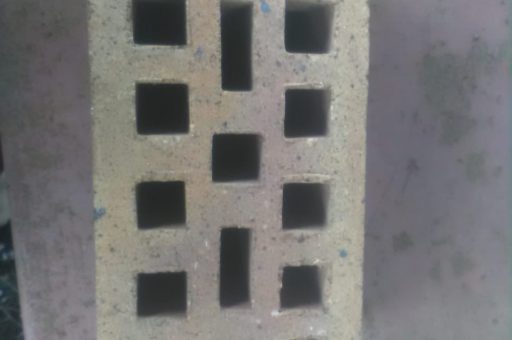FIRE BRICKS/REFRACTORY BRICKS IN KENYA
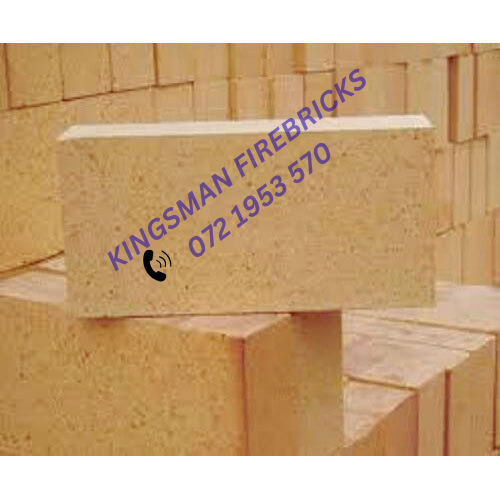
At Kingsman Engineering and Industrial Insulation Ltd, we supply and install high-quality refractory bricks in Kenya for industrial and commercial applications. These bricks are specially engineered to withstand extreme heat, chemical attack, and mechanical stress, making them essential for furnaces, boilers, incinerators, kilns, fireplaces, and other high-temperature equipment.
Whether you are building a new plant, upgrading your equipment, or repairing existing furnaces, our refractory bricks offer superior strength, durability, and insulation performance compared to ordinary bricks.
In Kenya there are two main types of fire bricks (refractory bricks). They are classified according to their alumina content which determines the level of temperature they can withstand. These are:
- 40% alumina content refractory bricks
- 70% alumina content refractory bricks
The 40% alumina content firebricks are the most popular in the Kenya and east Africa due to their wide applications. They have a temperature rating of 13700C thus suitable in wide applications such as furnaces, combustions chambers, light duty kilns, pizza ovens, fire places among other applications. The standard size of the 40% alumna fire bricks in the country is 230mm by 115mm by 75mm and weighs approximately 4.2 kgs. Their prices are also low and have a wide availability. Contact us today for your orders via +254 722 209 507.
On the other hand, 70% alumina content fire bricks are used in high temperature applications. In Kenya our 70% alumina fire bricks temperature rating is 1785oC suitable for applications such as blast furnaces, industrial kilns and other high temperature applications. The standard size of the 70% alumna fire bricks in the country is 230mm by 115mm by 75mm and weighs approximately 5.3 kg and are yellowish in color.
What Are Refractory Bricks?
Refractory bricks (also called firebricks or heat-resistant bricks) are specially manufactured bricks that can withstand continuous exposure to very high temperatures without melting, breaking, or losing strength.
Unlike ordinary clay bricks, refractory bricks are made from alumina, silica, and other heat-resistant materials, giving them excellent thermal insulation properties and resistance to thermal shock.
Difference Between Refractory Bricks and Regular Bricks
| Feature | Refractory Bricks (Firebricks) | Regular Bricks |
|---|
| Temperature Resistance | Withstand up to 1,800°c | Withstand up to 700°C |
| Material Composition | Made from alumina, silica, and special clays | Made from clay and soil |
| Strength | High compressive strength | Moderate strength |
| Lifespan. | 10–20 years (with proper maintenance) | 5–10 years under normal use |
| Applications | Furnaces, kilns, boilers, fireplaces, incinerators Walls, houses, pavements |
Prices of Refractory Bricks in Kenya
The price of refractory bricks in Kenya depends on size, density, alumina content, and temperature rating.
Standard sizes (230 x 115 x 75 mm): KSh 180 – 350 per brick
High-alumina refractory bricks: KSh 350 – 600 per brick
Custom/insulating refractory bricks: Quoted on request
At Kingsman, we provide wholesale prices for bulk orders and installation services for industries across Kenya and East Africa.
Lifespan of Refractory Bricks
Refractory bricks have a long service life if installed and maintained properly:
Domestic use (fireplaces, pizza ovens): 5–10 years
Industrial use (boilers, furnaces, incinerators): 3–8 years depending on heat load and chemical exposure
With proper maintenance, high-quality bricks can last over a decade.
Their lifespan depends on:
Operating temperature
Type of fuel used
Frequency of use
Maintenance and repair practices
We also provide refractory lining services to extend the life of your bricks and equipment.
Other Names of Refractory Bricks
Refractory bricks are also commonly known as:
Fire Bricks
High Alumina Bricks
Insulating Fire Bricks (IFB)
Acid-Resistant Bricks
Thermal Bricks
These terms often describe their specific composition or usage, but they all fall under the refractory brick category.
Applications of Refractory Bricks in Kenya
Industrial furnaces
Incinerators
Boilers
Kilns (ceramic, pottery, cement)
Fireplaces & pizza ovens
Foundries & steel plants
Sillimanite Bricks vs Bauxite Bricks
Sillimanite bricks are refractory bricks made from sillimanite as the base mineral while the bauxite refractory use bauxite as the base mineral. The main purpose of the sillimanite and bauxite rocks is to provide the alumina and silica components which are important in making the bricks get the refractoriness that is required.
Using Fire Bricks in Construction
When using fire bricks in construction it is important to note that refractory cement has to be used to ensure that the feature/building has the right thermodynamic properties. Refractory cements have the same heat resistant properties just like the fire bricks. In Kenya there are several types of refractory cements such as HT castable cement, Maxheat K high alumina castable cement, fire clay, Blakite cement, Fondu Cement and also fire clay cement.
Firebricks are the most common form of dense refractories. They are usually made from hydrated aluminium silicates and small amounts of pother elements. They are very versatile and low cost. The firebricks with high alumina contents are suitable in applications that have high temperatures. Firebricks with 99% alumina content are referred to as corundum and mainly used in process with over 1500°C such as glassmaking, pouring steel, incinerations, ash melting and super alloys moulds casting.
Zirconium silicate is the principal ingredient of zircon refractories which are extremely strong up to temperatures over 1750°C. They are used to build furnaces and kilns, to make crucibles in the metallurgical industries because they do not react with liquid metals and in glass furnaces because they are not wetted by the molten glass.
Why Our Firebricks are the Most Preferred in Kenya
Low thermal conductivity
- Excellent acid and base slagging resistance
- High refractoriness
- Excellent thermal shock resistance
- Excellent mechanical strength
- Good spalling resistance and wear resistance.
- Good corrosion resistance.
- High-temperature creep rate is quite low.
- Good volume stability at high temperature.
- Low bulk density, low thermal conductivity, good thermal insulation performance.
Frequently Asked Questions (FAQs)
1. What is the price of refractory bricks in Kenya?
Prices range between KSh 180 – 600 per brick depending on grade and application.
2. How long do refractory bricks last?
Between 3–10 years, depending on usage and maintenance.
3. Can I use regular bricks instead of refractory bricks?
No. Regular bricks crack under extreme heat and are unsafe for furnaces, boilers, or incinerators.
4. What are other names of refractory bricks?
They are also known as fire bricks, insulating fire bricks, high alumina bricks, and acid-resistant bricks.
5. Where can I buy refractory bricks in Kenya?
You can buy directly from Kingsman Engineering and Industrial Insulation Ltd in Nairobi, with delivery across Kenya and East Africa.

Blakite Cement
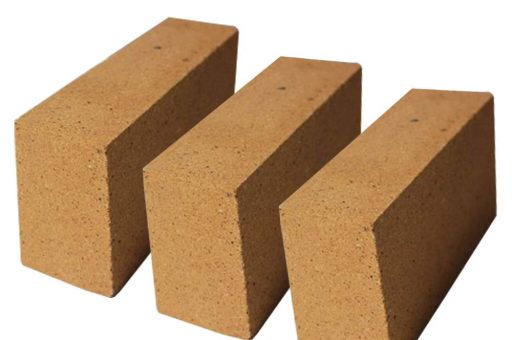
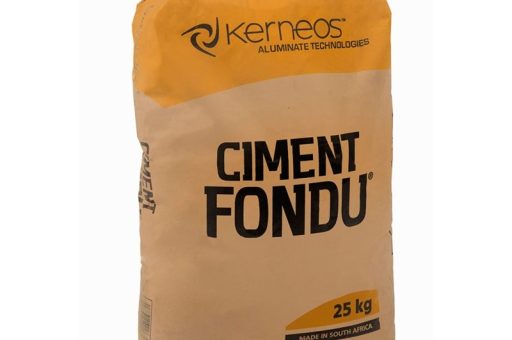
Fondu Cement
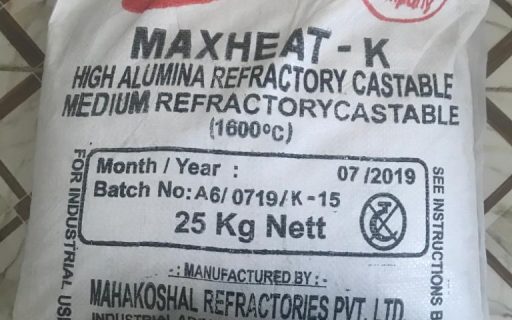
Refractory Castable (Fire Cement)
